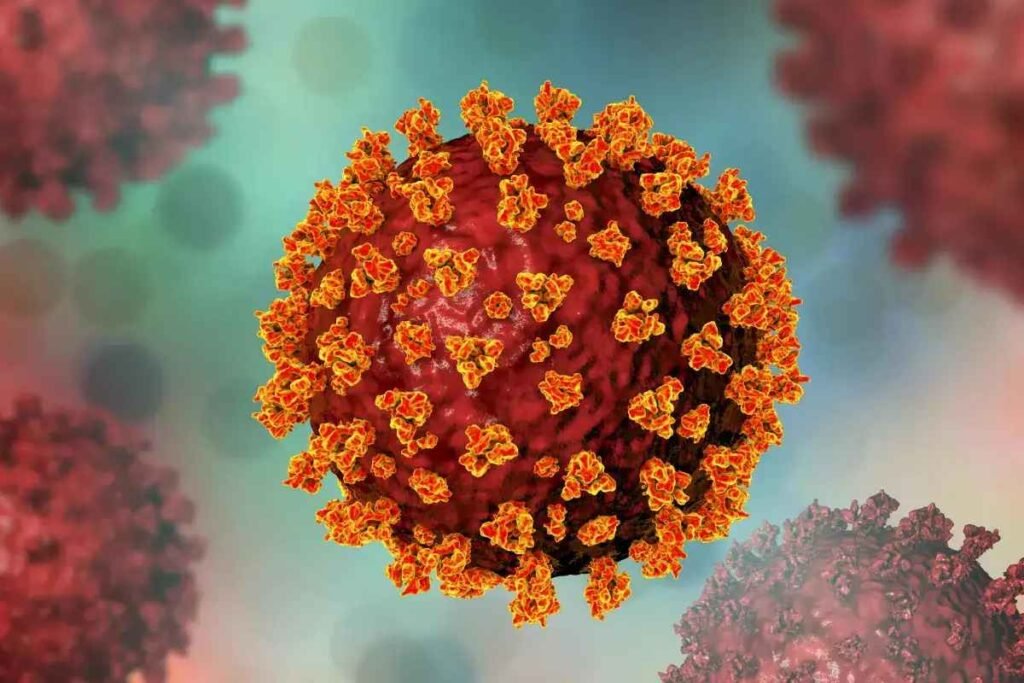A new wave of COVID-19 cases is being reported in several parts of the world, coinciding with the emergence of a fresh COVID Variant NB.1.8.1 of the virus. The World Health Organization (WHO) has identified a noticeable rise in infections across the eastern Mediterranean, Southeast Asia, and western Pacific regions. This uptick comes at a time when many countries have scaled back pandemic-related restrictions, raising concerns about preparedness and response capabilities.
The new variant, identified as NB.1.8.1, has begun circulating more broadly and is now on the WHO’s radar. Although it has not yet been classified as a variant of concern, the WHO has designated it as a “variant under monitoring” due to its increasing presence in genetic sequencing data. By mid-May, NB.1.8.1 accounted for nearly 11% of sequenced samples globally, indicating a significant rise in transmission. The agency currently considers the global health risk posed by the variant to be low, citing that existing vaccines are expected to remain effective against it.
COVID Variant NB.1.8.1Reaches the U.S. as COVID Guidance Shifts
The variant has already made its way to the United States, detected in travelers through airport screening procedures. Cases of NB.1.8.1 have been identified in several key entry points, including California, Washington state, Virginia, and New York. While these findings highlight the variant’s international spread, health authorities have so far not reported increased severity in disease caused by the new strain.
The emergence of NB.1.8.1 coincides with a significant policy change in the United States regarding COVID-19 vaccination. Health Secretary Robert F. Kennedy Jr. announced earlier this week that COVID-19 vaccinations are no longer recommended for healthy children and pregnant women. The decision marks a notable departure from previous public health guidance and has drawn criticism from numerous health experts who argue that it could lead to confusion and lower vaccination rates in vulnerable groups.
Despite the shift in vaccination recommendations, the Centers for Disease Control and Prevention (CDC) and the WHO continue to monitor COVID-19 trends and encourage caution, particularly with the approach of colder months in the northern hemisphere.
Dominant Strains and Public Health Outlook
While NB.1.8.1 has garnered attention, the current dominant variant both in the U.S. and globally remains LP.8.1. The WHO emphasizes that although COVID Variant NB.1.8.1 continues to evolve, there is currently no evidence suggesting that the new variant leads to more severe illness than its predecessors. Hospitalizations have risen slightly in some western Pacific nations, but healthcare systems are not yet reporting significant strain.
Experts stress the importance of maintaining routine public health surveillance, especially through genomic sequencing, to track emerging variants. As the pandemic enters a new phase, characterized by a more endemic presence of the virus, health officials underline the importance of balancing vigilance with evolving public health strategies.
For now, COVID Variant NB.1.8.1 is being closely monitored, and global health organizations remain cautious but not alarmed. The message from the WHO is clear- while the threat remains manageable, ongoing observation and community-level awareness are key to avoiding another widespread resurgence.









